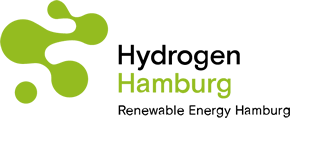Details
The Energy Transition – A Global Challenge Calls for Global Responses Guest article by Michael Eggenschwiler, CEO of Hamburg Airport and Chairman of Wasserstoff-Gesellschaft Hamburg e. V.
Why we need to build the hydrogen economy at an international level rather than regionally or nationally. There is no point in continuing the discussion of whether de-carbonisation will succeed without green hydrogen.

Why we need to build the hydrogen economy at an international level rather than regionally or nationally.
There is no point in continuing the discussion of whether de-carbonisation will succeed without green hydrogen. Or that we need H2 as a source of energy to achieve the ambitious goals of the EU and the federal government, which state that Germany should reach carbon neutrality by 2045. The energy world will experience radical changes, and all of them look green: a steady drop in the prices of electricity from renewable sources and ongoing innovations have made sustainable hydrogen a viable solution for a climate-neutral economy in industry and transport, as well as in the energy and building sectors.
It’s therefore hardly a surprise that numerous hydrogen strategies have been launched at a regional, national and European level. They are accompanied by a rapid acceleration in the marketing of research and pilot projects, network activities and information portals for hydrogen as a source of energy.
The five federal states in Northern Germany also introduced a joint hydrogen strategy in 2019. Its aim is to establish a green hydrogen economy in Northern Germany by 2035. This will open up prospects for an extremely bright future in the region – after all, with its direct access to the wind farms in the North Sea and the Baltic Sea, Northern Germany ticks all the boxes for optimised production, storage and use of green hydrogen, as well as for trading in the renewable energy via the German seaports.
The future certainly looks promising. However, it has become increasingly obvious that no single location can establish a hydrogen economy on its own. Hamburg is a good example: we have the industry, the ports with their high energy requirements and access to global trade. But it’s our neighbours who have the wind – so we will only be successful with green hydrogen if we operate regionally, together with the surrounding federal states. The relevant issues go beyond simple location conditions or logistics and extend just as much to the necessary exchange of know-how. Knowledge is the only resource that multiplies when it is shared.
So we need networking and collaboration between all stakeholders to ensure the success of hydrogen technology: between the business sector, the scientific community, politicians and society as a whole. For this to happen, collaboration must take place at an international level, simply because sustainably produced hydrogen, which is predominantly produced in countries blessed with plenty of sun and wind, will nevertheless be traded globally. This is a plea for building a mature, marketable and reliable green hydrogen economy across borders and for developing a shared approach – a factor that has been notable in its absence so far.
We initiated the International Hydrogen Symposium together with Wasserstoff-Gesellschaft Hamburg (Hydrogen Society Hamburg) and the Association of North German Chambers of Commerce and Industry (IHK Nord) to promote international cooperation and network the numerous hydrogen activities. The second symposium will take place on 15 June. Talks at the symposium are held in English, and it will be attended by speakers from all over the world – Chile, Morocco, Sweden, the United Arab Emirates, the Netherlands and the USA. Despite the digital format, networking between the participants is a vital part of the event. The live stream will be broadcast worldwide, and we will also provide participants with the opportunity to gather in small groups to share their thoughts about the hydrogen economy at virtual bar tables and to make contact with each other individually.
Click on the following link to register for free: https://h2symposium.goes-virtual.de/
We are looking to exciting discussions and hopefully plenty of new collaborations.
Michael Eggenschwiler is CEO of Hamburg Airport and Chairman of Wasserstoff-Gesellschaft Hamburg e. V., which has promoted the introduction of green hydrogen energy into the energy industry and publicly endorsed hydrogen as an energy source since 1989. The company advocates close cooperation between the business sector, the scientific community and politicians in Hamburg and Northern Germany and collaborates with the hySOLUTIONS GmbH project company and the universities in Hamburg. Learn more: https://www.h2hamburg.de/

